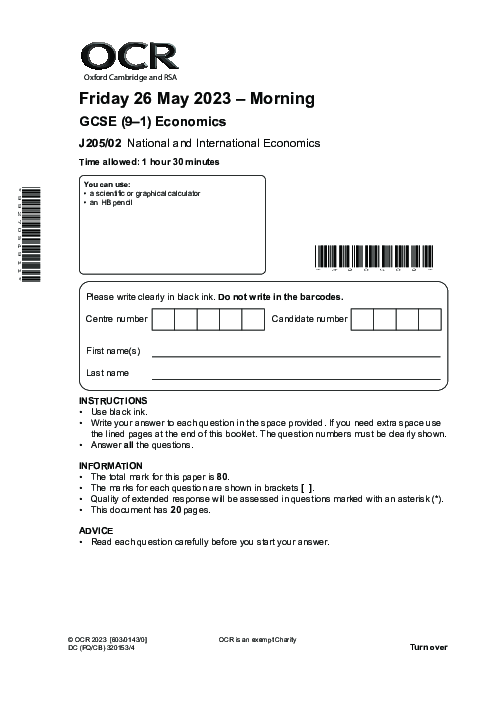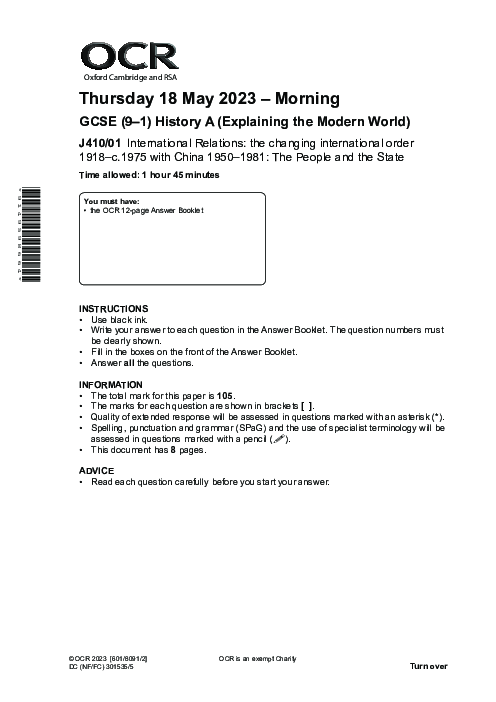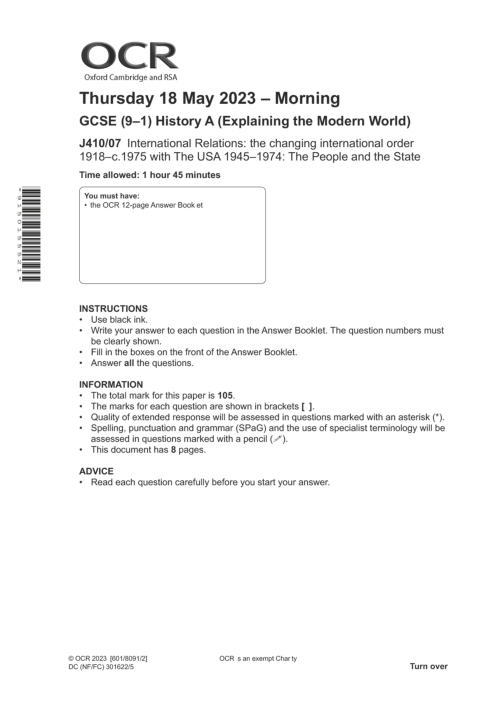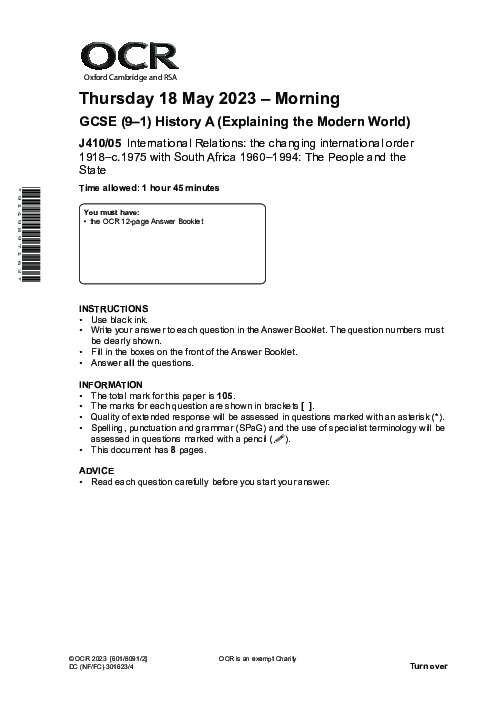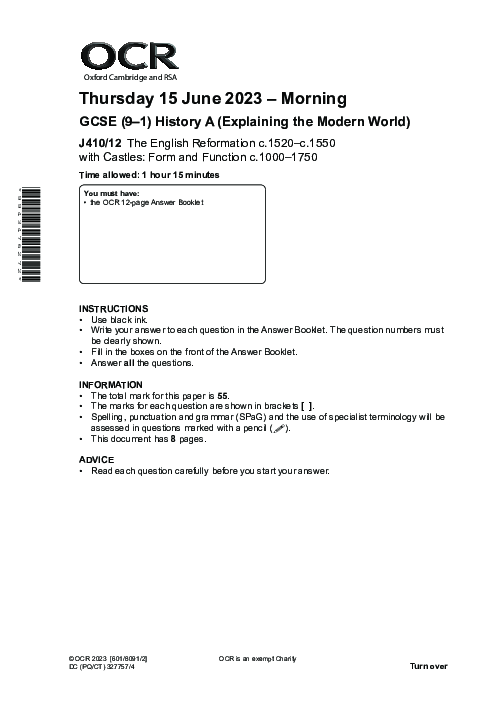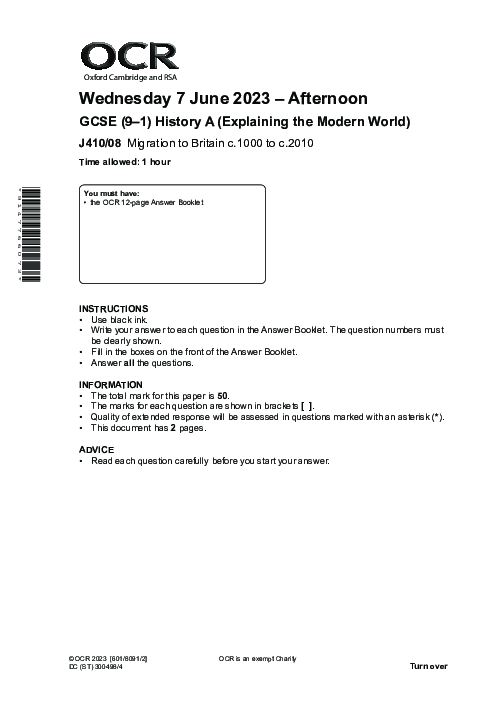History (A) J410,01 June 2022 , OCR GCSE Past Papers with Mark Schemes
1. Impact of the Cultural Revolution in Tibet (1966–1976) – Destruction of monasteries, suppression of religious practices, and efforts to enforce Communist ideology.
2. Changes Under Deng Xiaoping (1976–1981) – Reforms in education, economic policies, and social structure, shifting away from Maoist policies.
3. Importance of Dazhai Commune (1960s) – Model for agricultural collectivization, propaganda tool for Maoist self-sufficiency, and its role in shaping rural policies.
4. Analysis of Source A on the Cultural Revolution (1966) – Justification for purging opposition, reinforcing Mao’s authority, and mobilizing mass support.
5. Usefulness of Source B on the Cultural Revolution – Government propaganda depicting mass enthusiasm, potential exaggeration, and staged imagery.
6. Reasons for Communist Control in the 1950s – Role of popular policies, military strength, land reforms, suppression of opposition, and propaganda efforts.


